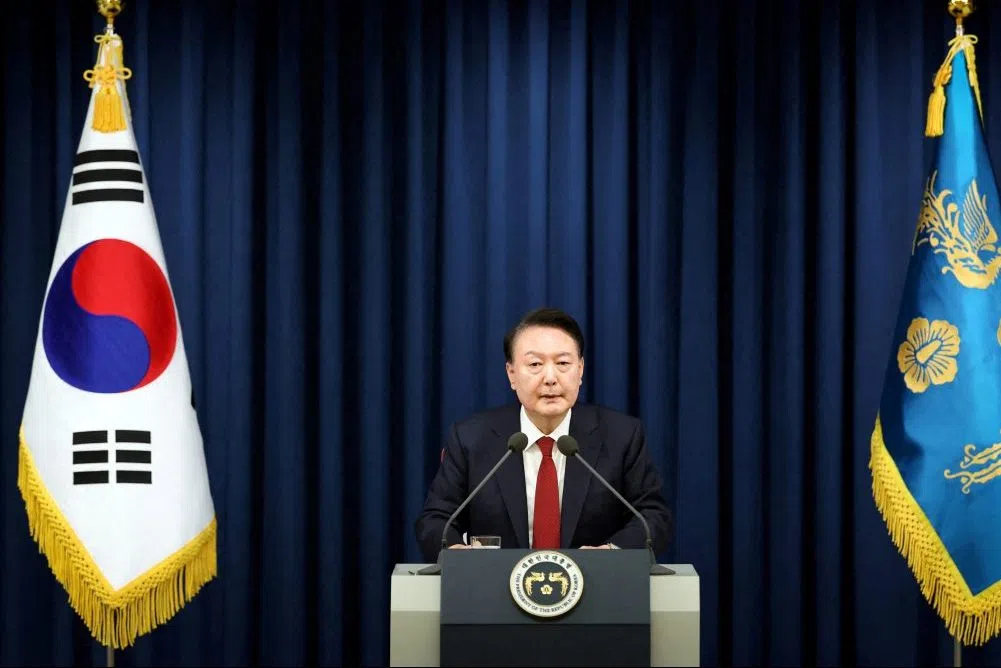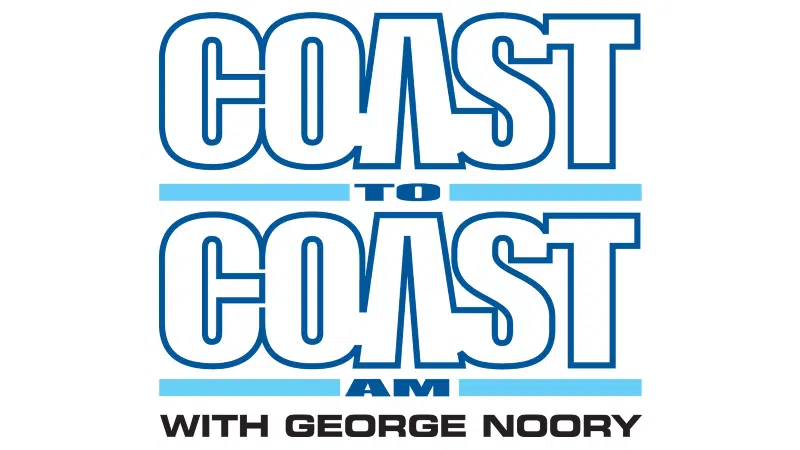UPDATED 1:04 P.M.
SEOUL (Reuters) -President Yoon Suk Yeol declared martial law on Tuesday night, creating the most serious challenge to South Korea’s democracy since the 1980s as lawmakers rejected the move in a vote and protesters gathered outside parliament.
Yoon’s declaration, which he cast as aimed at his political foes, was vocally opposed by the speaker of parliament and even the leader of Yoon’s own party, Han Dong-hoon, who has clashed with the president over his handling of recent scandals.
Under South Korean law, the president must immediately lift martial law if parliament demands it by a majority vote.
Live television footage showed helmeted troops apparently tasked with imposing martial law attempting to enter the National Assembly building. Parliamentary aides were seen trying to push the soldiers back by spraying fire extinguishers.
Yoon said in a TV broadcast that opposition parties had taken the parliamentary process hostage. He vowed to eradicate “shameless pro-North Korean anti-state forces” and said he had no choice but to take the measure to safeguard constitutional order.
“This declaration is illegal and constitutes a criminal act, directly violating the Constitution and other laws,” the opposition Democratic Party said in response.
“It is essentially a coup d’état,” it said.
Shortly after Yoon made his announcement, people began gathering outside the parliament building, some of them shouting: “Withdraw emergency martial law!”
“Arrest Yoon Suk Yeol” shouted others.
Demonstrator Im Jin-soo, 66, said he asked his children to stay at home out of concern for their safety but he came to protest outside the parliament after seeing the news.
“I am so angry, I am beyond confused,” he said. “I came out to protect democracy. During the dictators we couldn’t rise up, but now we can.”
After Yoon’s statement the military said activities by parliament and political parties would be banned, and that media and publishers would be under the control of the martial law command.
Yoon did not cite any specific threat from the nuclear-armed North, instead focusing on his domestic political opponents. It is the first time since 1980 that martial law has been declared in South Korea.
South Korea has had a series of authoritarian leaders early in its history but has been considered democratic since the 1980s.
The Korean won was down sharply against the U.S. dollar. A central bank official said it was preparing measures to stabilise the market if needed. Finance Minister Choi Sang-mok has convened an emergency meeting among top economic officials, his spokesman said in a text message.
U.S. Deputy Secretary of State Kurt Campbell said the United States was watching events in South Korea with “grave concern” and hoped that any political disputes would be resolved peacefully and in accordance with the rule of law.
He stressed that the U.S. alliance with South Korea was “ironclad”, adding: “We stand by Korea in their time of uncertainty.”
Some 28,500 U.S. troops are stationed in South Korea to guard against the North. A spokesman for the U.S. military command did not answer repeated phone calls.
(Reporting by Jack Kim, Ju-min Park, Hyunsu Yim and Josh Smith; Additional reporting by Michelle Nichols at the United Nations and David Brunnstrom and Ismail Shakil in Washington; Writing by Alexandra Hudson and William Maclean; Editing by Alistair Bell)
—————————–
SEOUL (Reuters) –South Korean President Yoon Suk Yeol on Tuesday declared martial law in an unannounced late night address broadcast live on YTN television, claiming he would eradicate “shameless pro-North Korean anti-state forces”.
It is the first time since 1980 that martial law was declared in South Korea.
Yonhap news agency cited the military as saying activities by parliament and political parties would be banned, and that media and publishers would be under the control of the martial law command.
Yoon did not cite any specific threat from the nuclear-armed North, instead focusing on his domestic political opponents.
The surprise move sent shockwaves through the country, which had a series of authoritarian leaders early in its history but has been considered democratic since the 1980s.
The Korean won was down sharply against the U.S. dollar. A central bank official said it was preparing measures to stabilize the market if needed.
The White House did not immediately respond to a request for comment. Some 28,500 U.S. troops are stationed in South Korea to guard against the North. A spokesman for the U.S. military command did not answer repeated phone calls.
Yoon said he had no choice but to resort to such a measure in order to safeguard free and constitutional order, saying opposition parties have taken hostage of the parliamentary process to throw the country into a crisis.
“I declare martial law to protect the free Republic of Korea from the threat of North Korean communist forces, to eradicate the despicable pro-North Korean anti-state forces that are plundering the freedom and happiness of our people, and to protect the free constitutional order,” Yoon said.
Yoon did not immediately specify who constituted the pro-North Korean anti-state forces. But he has cited such forces in the past as hindering his agenda and undermining the country.
He did not say in the address what specific measures will be taken. Yonhap reported that the entrance to the parliament building was blocked.
“Tanks, armored personnel carriers, and soldiers with guns and knives will rule the country,” Lee Jae-myung, leader of the opposition Democratic Party, which has the majority in parliament, said in a livestream online. “The economy of the Republic of Korea will collapse irretrievably. My fellow citizens, please come to the National Assembly.”
Yoon cited a motion by the country’s opposition Democratic Party, which has a majority in parliament, this week to impeach some of the country’s top prosecutors and its rejection of a government budget proposal.
South Korea‘s ministers on Monday protested the move by the opposition DP last week to slash more than 4 trillion won from the government’s budget proposal. Yoon said that action undermines the essential functioning of government administration.
(Reporting by Jack Kim, Ju-min Park, Hyunsu Yim and Josh Smith; Editing by Alexandra Hudson)







Comments